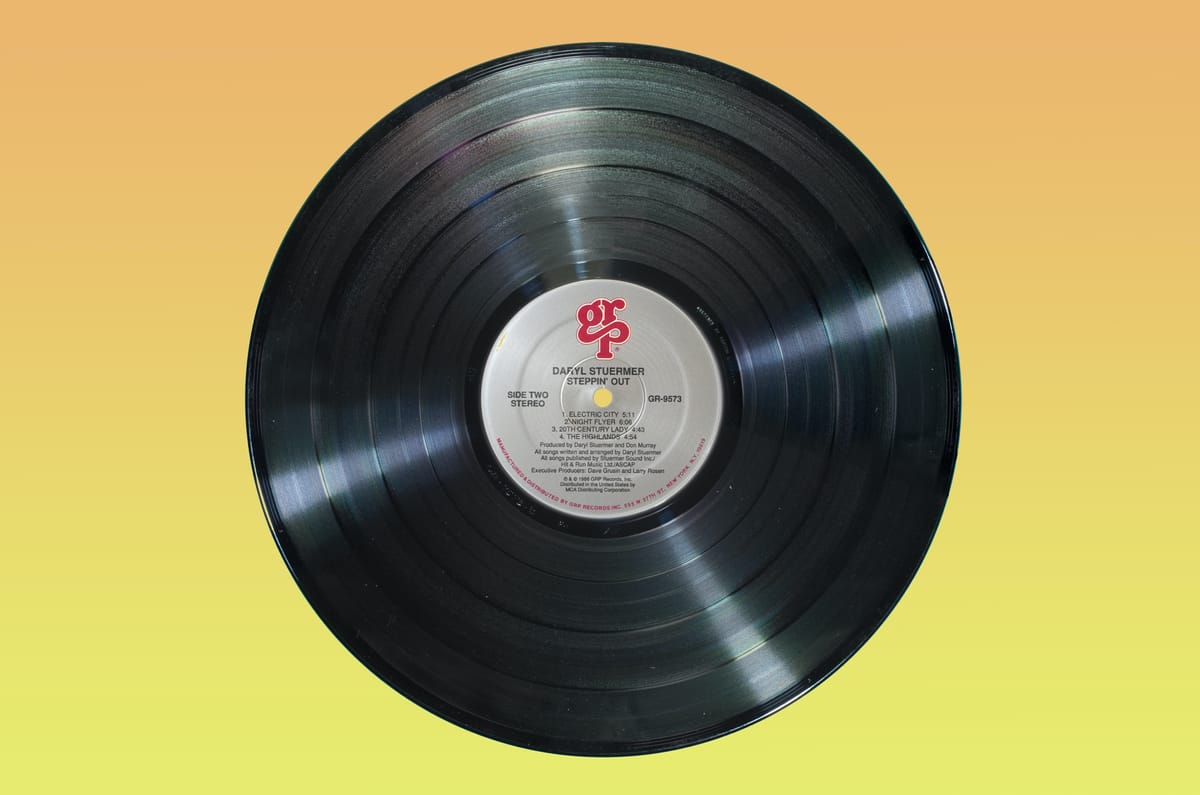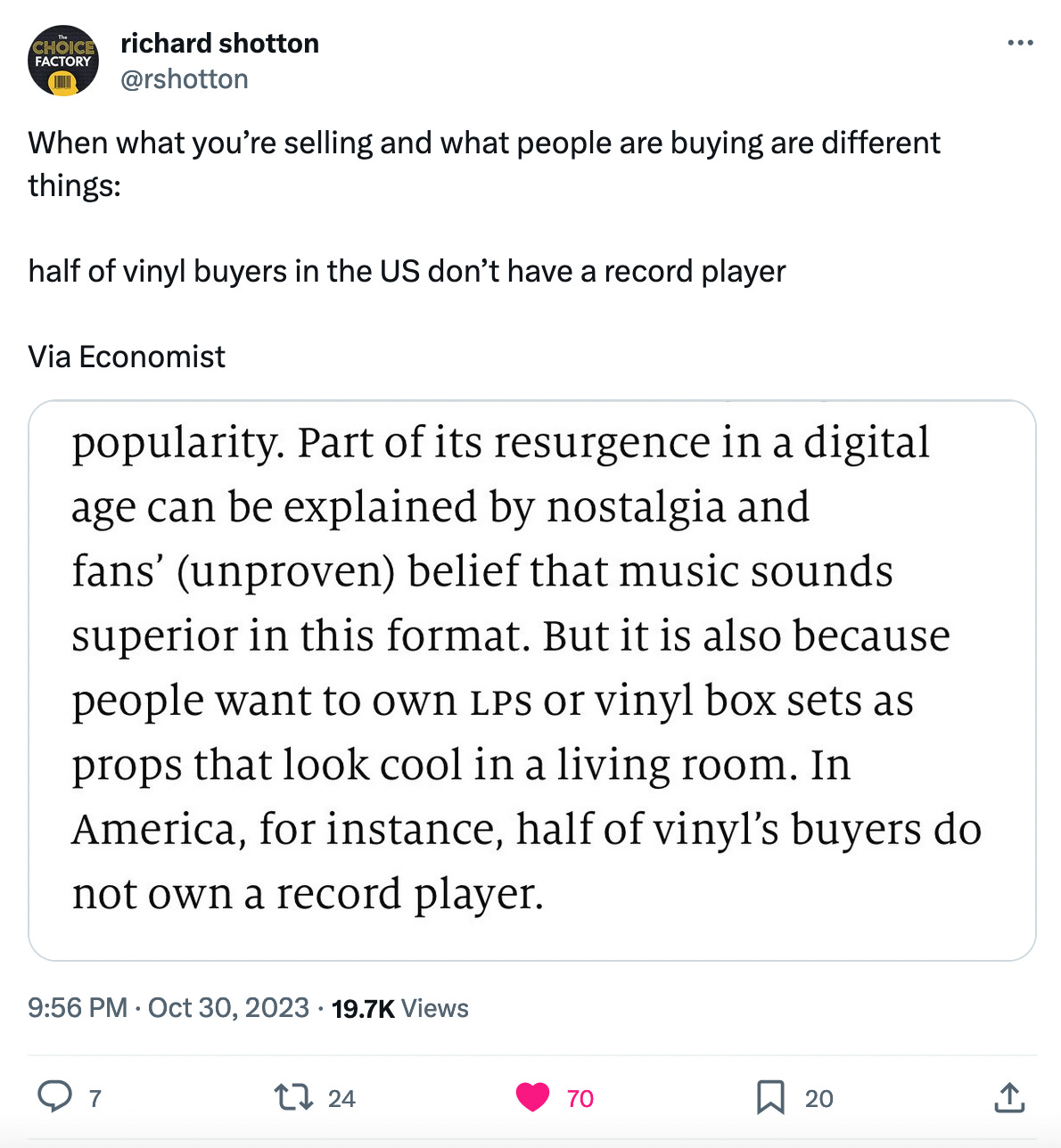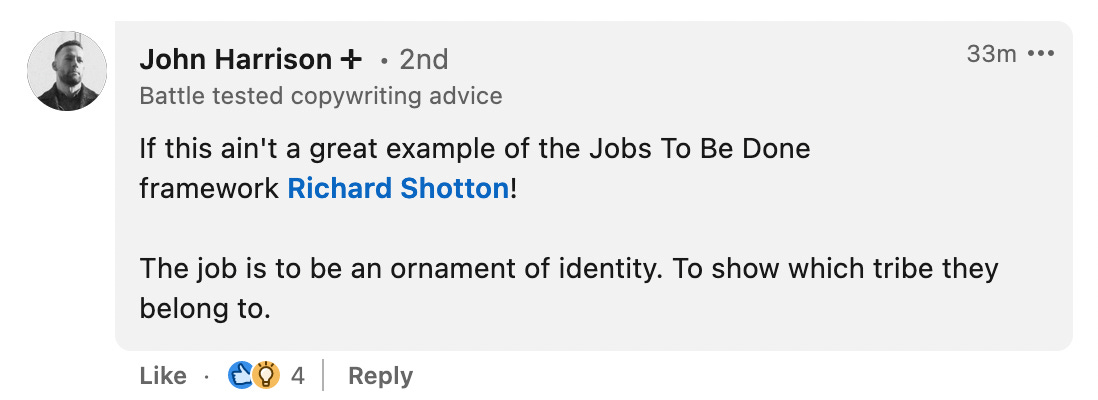What you’re selling and what people are buying are different things
It's not (only) about the art

I read a couple of things recently, this LinkedIn post from Ruth Hartt, and this article from Alan Harrison.
In her post, Ruth says:
People don't wake up in the morning thinking "I need to find an orchestra that's for everyone" or "I need to find an opera company that's innovative" or "I need my life to be enriched by art."
They wake up thinking, "How am I going to make it through another stressful week?" "How can I rekindle my relationship with my spouse?" "How can I break free of my unhealthy screen addiction?" "How can I ensure that my children thrive?"
Along similar lines, in his article, Alan writes:
“No one else cares what you do or how well you do it. They care about why your community is made better by you having done it.”
I don’t entirely agree with this statement, but there is a large slice of something valid in there.
These questions, of value, of positioning, of engagement, of impact, and of language, seem to be getting asked with increasing regularity.
And that is, I think, only a good thing.
But it requires us to think differently.
In a recent tweet, Richard Shotton highlighted some 2023 research that showed only 50% of record buyers (in the USA) own a record player.

What you’re selling and what people are buying are different things.
Here is one of the comments after Richard shared this on LinkedIn

In this comment, John Harrison references the Jobs to be Done (JTBD) framework.
This framework is a theory that focuses on the customer/user’s specific need, rather than the action they are performing.
It seeks to understand the ‘why’ of the purchase rather than the ‘what’.
As John says in the case of buying vinyl when you don’t own a record player, “the job is to be an ornament of identity, to show which tribe they belong to”.
There’s a useful article on the JTBD framework in the Harvard Business Review from a few years ago.
What is your audiences actually buying from you when they purchase a ticket, or buy a membership, or make a donation?
What value are you delivering to them in those moments?
What do they get from you that no-one else can provide?
In the answers to these questions lies hope!
A mildly related thing to end on, the Japanese word, Tsundoku (積ん読) refers to “the phenomenon of acquiring books but letting them pile up without reading them”.